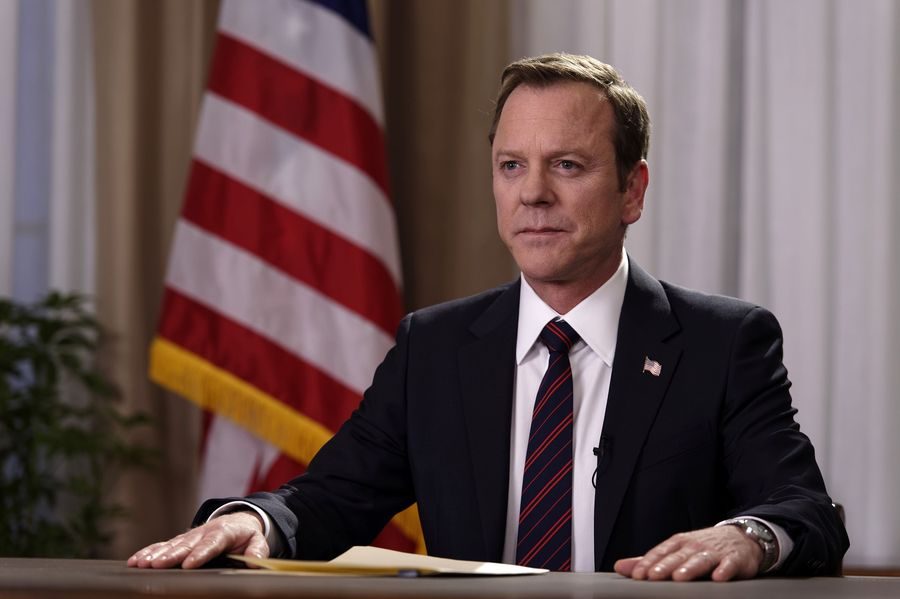'Designated Survivor' Review/Recap: "Pilot"

Jessica Morris ‘19 / Emertainment Monthly TV Staff-Writer
Thanks to the current political climate, many Americans have discovered a newfound interest for politics, which bodes well for any political drama series that hopes to be successful. ABC’s newest political thriller, Designated Survivor, premiered Wednesday, September 21st to high-ratings. During its premiere, Designated Survivor brought in over 10 million total viewers and scored a Nielsen rating of 2.3 among adults ages 18-49. In the series, Kiefer Sutherland (known for 24) stars as Tom Kirkman, the Secretary of Housing and Urban Development, who suddenly becomes President after the unthinkable occurs.
A low-ranking Cabinet member, Kirkman is selected as the “designated survivor” before the State of the Union address. When the remainder of his colleagues are decimated in an explosion, Kirkman, who had been fired earlier that same day, ascends to the Presidency. The remainder of the season will primarily concern itself with the aftermaths of this attack. Audiences will follow Kirkman as he attempts to prove himself to the American people under intense pressure and scrutiny. Kirkman will also have to defend himself against a conspiracizing and war-hungry US Army General, Harris Cochrane (Kevin R. McNally), who is adamant that Kirkman has no business in the Oval Office. Meanwhile, The FBI, led by Hannah Wells (Maggie Q), will be busy investigating the attack, in search of the culprits behind it.

The only thing holding the show back is a somewhat unassuming and possibly underdeveloped set of characters. General Cochrane, for example, is depicted moreso as a walking stereotype than a well-developed character unique to the series. He is first introduced to viewers as a general who hopes to trigger a nuclear war. And then there’s President Kirkman’s son (Tanner Buchanan) who plays the part of a rebellious teen, selling drugs and partying, included. At least Kirkman seems to be a genuine and uncorrupted politician, something rarely seen on television these days. For the most part, though, the show’s characters currently feel uninspired.

Some viewers have also questioned the believability behind the show’s premise, but assigning a “designated survivor” before every presidential address does happen in reality. The practice originated during the Cold War, due to the country’s paranoia about a possible nuclear attack. Since then, whenever the President, Vice-President, and Cabinet members are assembled in one space, a random Cabinet member (e.g. the Secretary of Transportation) is ushered to an undisclosed location. If anything were to happen to everyone else, that ‘designated survivor’ would then become President by order of succession.
It is this reality of ‘designated survivors’ that makes the premise of the show even more interesting. Designated Survivor concerns itself with the question of what would happen if something like this were to occur. Would we rise together as a united country or begin the practice of pointing fingers, in search of a scapegoat?

Designated Survivor airs Wednesday nights at 10PM on ABC.
Episode Grade: A